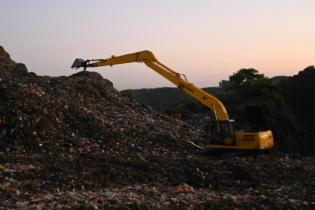The sustainability priority for the next 20 years will be finding solutions that work for developing countries where young, rapidly growing populations need jobs, food, and energy. So says Standard Bank director of Group Sustainability, Karin Ireton, who is participating in several dialogues alongside the United Nations Conference on Sustainable Development, focused on sustainability funding solutions, defining the green economy, and integrated reporting by business organisations.
“Twenty years after the first United Nations Earth Summit, we have a far greater scientific understanding of the unnecessary burdens we place on the planet and we have globally accepted sustainability frameworks. The ability to convert those into realistic change at grass roots is, however, still slower and less widespread then we need. And the challenge is becoming more complex as solutions will need to be focused on the current conditions in different regions. Sustainability in the developed world will have to take a different path from that in emerging economies,” says Ireton. For developed countries, leading innovation will be essential to reduce current environmental and social costs of doing business through improved and breakthrough technologies. Enforcement of compliance with sustainability requirements will also be a significant factor. In developing economies, however, the early requirement will be creation of jobs in greener economies in order to help avoid or stabilise social turmoil caused by a lethal combination of geo-political and environmental issues.In Africa, for instance there is major migration of people away from war torn countries, away from environmental stress and all in search of jobs and a better life. Climate change will exacerbate the weather conditions and make it harder for people to survive. “Africa inland is particularly vulnerable to higher temperatures,” Ireton says. “But if one looks at population distribution, most big conurbations are on the coast line, which are vulnerable to greater storm surges and eventually to sea level rise. Add to that the fact that some of the food growing areas are experience changing water patterns, and you have a brew of social conditions that poses a threat to regional stability. “Counties in south east Asia and west Asia will experience similar problems as they have large, growing populations of people along their coastlines. They have the additional problem of changing monsoon conditions, which constitutes a threat to life as well as economic growth. “In many developing countries, tourism is a big employer but the tourism base is strongly linked to ecological situations that we know will be impacted by reductions in biodiversity or climate change. Climate change, for example, will causing coral bleaching which not only negatively impacts eco-tourism but also global food supply, as the reefs are productivity hotspots for the oceans and nurseries for fish.”
Then there’s the direct link between economic activity and the availability of energy and the fact that the conventional production and distribution of energy impacts the environment. “We must find a way for developing economies to use clean energy, so that we don’t increase their vulnerability to climate change,” Ireton says. “The clean energy must also be affordable, so that we don’t add to their debt burdens and we empower the man and woman in the street to access energy for their small businesses or education. The end game is to trigger job creation. In an ideal world, the jobs should be focused on green economic activity and, thereby, lead to the development of a green economy.
At least part of the definition of a green economy is that it is inclusive. It offers opportunities at all skills levels, from unskilled and artisan work in retrofitting technology improvements or recycling to high skilled, innovation-oriented opportunities for those who have the ability to deliver smarter ways of doing business. “However, to kick-start sustainability in developing countries, we need to create jobs based on current skills available there and do it in such a way that they lead to development of additional skills whose end result will be the entrenchment of a green economy.”





